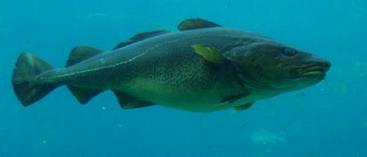
Fish and shellfish have long been a vital food source for humans. Historically, fish stocks seemed so plentiful that many thought there were such huge amounts of fish in the sea that human fishing could have little or no impact on their numbers. As such, mass fishing continued largely uncontrolled and unregulated until just a few decades ago. Fishing industries grew, and for many regions and whole countries became vital for their communities. Unfortunately, fish stocks are far from inexhaustible, and over-exploitation of our sea’s resources has had disastrous consequences.
Raiding The Fishy Bank
The Food and Agriculture Organisation estimates 70% of the world’s fish stocks are either fully-fished, over-fished, or depleted, that two thirds of the main commercial fish stocks in the Northeast Atlantic are outside their safe biological limits, and that globally 30% of stocks are overfished.
In some regions whole stocks have collapsed, such as the cod stocks in the north-west Atlantic. When fish stocks collapse, thousands of people lose their jobs and whole industries fail, ruining the local economies of whole cities. The collapse of a population of fish can also have negative effects on marine ecosystems as removing one link in a food chain can have large knock on effects.
The slow realisation that fish stocks could irreversibly collapse has forced governments around the world to impose quotas on the number of fish of each species a country can catch. This puts a cap on how successful a particular fishing port can be, and there is great debate and anger over how these quotas are divided between countries and regions as many fishermen and their local communities struggle to make ends meet.
What is needed is a way to assess the impact on overfishing, to predict how fish species will respond and a program to manage fish stocks to maintain a healthy population and limit other negative effects on the ecosystem.
Evolving Ideas To Manage Evolving Fish Stocks

Human-induced pressure on natural populations can be very strong and can produce rapid evolutionary responses from a species. For many fish stocks mortality from fishing can be more than four times greater than natural mortality.
In many species which are over fished this has led to evolutionary changes in life-history traits. A life-history trait is basically the way an individual develops; how fast it matures and how big it grows. Since most fishing practices favour large, mature fish there is a selective advantage for fish to mature at a smaller size, and cease growth earlier. This allows them to reproduce earlier and when they are smaller, so increasing their chance of having offspring before being taken by a net.
There is a lot of evidence now that shows this is happening. Many heavily fished species, compared to the same population just a few decades ago, now mature at a younger age, at a smaller size and have reduced annual and maximum growth. For example, Cod caught off the cost of Norway mature in 6 years now, but just 20 years ago they matured in 10 years; they are also much, much smaller at maturity. There is also a loss of genetic diversity in many populations; this is important as there is an association between genetic diversity and ability to fight off infections.
Such fishery-induced evolution is an amazing example of rapid evolutionary change. But it also spells bad news for the fishing industry as such changes diminish yield; there are simply less big fish to catch. In addition the changes can have wider effects on the fish’s ecosystem potentially magnifying the negative effects of over fishing. The prey these fish feed on will flourish, and the predators which, like us, rely on these populations will suffer. Often these are top-of-the-chain predators which are most vulnerable to changing ecosystems.
In order to manage fish stocks successfully we cannot simply catch fewer fish; we also need to think about which fish are taken. Experiments using controlled fish populations and monitoring the effect of selective capture by humans will be necessary to provide information about how best to respond to evolving fish stocks. Population models, developed by evolutionary biologists to describe how average traits of a population change under different conditions can also be exploited, and ideas about short-term management to appease fishing industries can be tested using these models to estimate their long term effects.
Ultimately successful management of our fish stocks, and the survival of our fishing industries, will depend on the amalgamation of ecological and evolutionary theory and experiments with real data from our over-exploited fish stocks.
Written by Stephen Montgomery